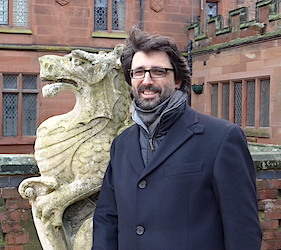

Roman Frigg: Climate Change and Intergenerational Justice
22 October 2014, 3:00 pm - 5:00 pm EDT
ABSTRACT
Should we take drastic measures to reduce greenhouse gas emissions now, or should we continue our current practices and leave it to future generations to adapt to the effects of climate change? Opinions on this issue are divided. In this lecture I explain the terms of the debate in plain English (no knowledge of either climate science or economics is presupposed), and defend what I think is the most reasonable position.
SPEAKER PROFILE

Roman Frigg is Professor of Philosophy in the Department of Philosophy, Logic and Scientific Method, Director of the Centre for Philosophy of Natural and Social Science (CPNSS), and Co-Director of the Centre for the Analysis of Time Series (CATS) at the London School of Economics and Political Science. He is a permanent visiting professor in the Munich Centre for Mathematical Philosophy of the Ludwig-Maximilians-University Munich. He held visiting appointments in the Rotman Institute of Philosophy of the University of Western Ontario, the Descartes Centre for the History and Philosophy of the Sciences and the Humanities of the University of Utrecht, the Sydney Centre for the Foundations of Science of the University of Sydney, and the Department of Logic, History and Philosophy of Science of the University of Barcelona. He is associate editor of the British Journal for the Philosophy of Science, member of the steering committee of the European Philosophy of Science Association, and serves on a number of editorial and advisory boards.
He holds a PhD in Philosophy from the University of London and masters degrees both in theoretical physics and philosophy from the University of Basel, Switzerland. His research interests lie in general philosophy of science and philosophy of physics, and he has published papers on climate change, quantum mechanics, statistical mechanics, randomness, chaos, complexity, probability, scientific realism, computer simulations, modelling, scientific representation, reductionism, confirmation, and the relation between art and science. His current work focuses on predictability and climate change, the foundation of statistical mechanics, and the nature of scientific models and theories.
Read more about Roman Frigg.
